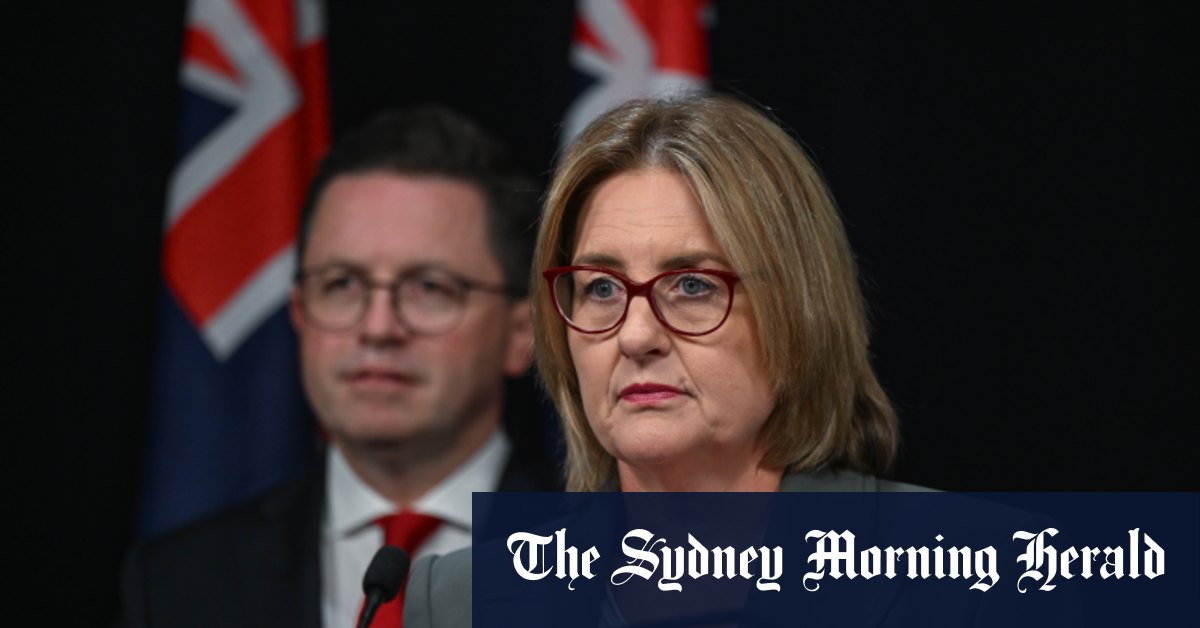Australia
Jacinta Allan flags overhaul, says industry needs to clean up act

A Case of Abuse and Exploitation: The Singh Taxi Scandal
The case of Singh, a Victorian taxi driver, has shocked the community and sparked widespread outrage. In December, Singh pleaded guilty to 499 charges, including numerous counts of fraud, overcharging, and assaulting disabled passengers. The revelations have led to calls for stricter regulations and better oversight of the taxi industry. Minister for Transport and Planning, Allan, has expressed her disgust at the behavior, emphasizing that people with disabilities deserve respect and protection. The Department of Transport and Planning has launched a review to strengthen procurement practices, accreditation processes, and the use of technology to prevent such abuses in the future.
The Crimes Committed by Singh
The crimes committed by Singh were both disturbing and extensive. He was found guilty of overcharging passengers, fraudulent activities, and physically assaulting disabled individuals. Additionally, Singh violated safety regulations by cramming up to four wheelchair-bound passengers into his taxi, exceeding the legal limit of two. He also failed to secure passengers’ wheelchairs while driving, putting their lives at risk. Furthermore, Singh was convicted of driving under the influence of alcohol, with a blood-alcohol reading of 0.191, which is more than three times the legal limit in Victoria.
Consequences and Calls for Reform
Magistrate Kieran Gilligan, who presided over the case, imposed a $20,000 fine on Singh and handed down a two-year community corrections order. However, the Magistrate also highlighted the need for legislative reform, stating that current laws governing taxi drivers make it difficult for courts to impose jail terms for such offenses. Opposition Leader Brad Battin echoed this sentiment, calling for stronger laws to protect vulnerable passengers. Battin stressed that Victorians should feel safe in taxis and free from the fear of being exploited or abused. He emphasized the need for a strong message to commercial vehicle drivers that such behavior will not be tolerated.
The Taxileaks Investigation and Industry-Wide Abuse
The Singh case is not an isolated incident. A broader investigation known as Taxileaks has revealed widespread exploitation of vulnerable passengers and government organizations within the taxi industry. Many drivers have been exploiting loopholes in payment systems provided by A2B, a company contracted to provide taxi services. These scams often involve gaming Cabcharge fare payment products, which are supplied to state and federal agencies, companies, hospitals, and disability services. The revelation of these practices has raised serious concerns about the integrity of the taxi industry and the need for systemic change.
The Need for Legal and Regulatory Reforms
The Singh case and the Taxileaks investigation have highlighted the urgent need for legal and regulatory reforms in the taxi industry. Minister Allan has acknowledged the failings in the current system and has committed to strengthening procurement practices, accreditation processes, and the use of technology to monitor driver behavior. Opposition Leader Brad Battin has also called for tougher laws to protect passengers, particularly those with disabilities. He has emphasized the importance of ensuring that drivers understand the consequences of exploiting or abusing passengers.
Protecting Vulnerable Communities and Ensuring Accountability
The Singh case has had a profound impact on the community, particularly on people with disabilities who rely on taxi services for their mobility. The abuse and exploitation they have suffered are unacceptable, and it is the responsibility of the government and the industry to ensure their safety and dignity. The Department of Transport and Planning’s review is a step in the right direction, but more needs to be done to address the systemic issues that allowed such abuse to occur. By strengthening laws, improving oversight, and holding drivers accountable, Victoria can create a safer and more equitable transportation system for all.